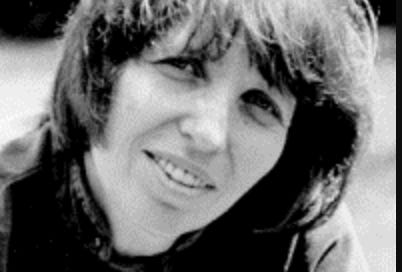I am still in shock that Linda Pastan has died. We were just in touch a few weeks ago after her surgery. I very much liked knowing she was in the world. We first met when I was sixteen when she visited my high school library to give a poetry reading. Twenty-some years later, we met again at the Bread Loaf Writers Conference. She was the one that suggested I return to graduate study for an MFA. As she hugged me goodbye at the end of the two weeks, she asked me to keep in touch with her so she could follow my career. I looked over my shoulder sure she must be speaking to someone else. As a creating writing professor now myself, I'm stunned by how much power that one sentence had to change my life. And yes, reader, we did stay in touch. I last saw her when she came out to Seattle with her husband for a reading. Recently, as in a few weeks ago, we were emailing about her essay,"More of the Sum of Its Parts," which she wrote for an anthology Kelli Russell Agodon and I coedited: Demystifying the Manuscript: Essays and Interviews on Creating a Book of Poems (Two Sylvias Press, 2023). We also talked about both of us having new collections this year and I sent her my Gallery of Postcards and Maps: New and Selected Poems after the holidays with an inscription of how important she has always been to me. Two weeks ago, I wrote a blogpost highlighting Linda's work because I didn't believe her poems were as well known as they deserved. I wonder if her death will finally amplify the importance of her 50 years of publishing brilliant poems and bring an important spotlight to her work.
Linda Pastan reading from Almost an Elegy this past November at 90 years old. Since her death, I've done a deep dive into her 15 books and watched her on several YouTube videos. There's two videos I keep playing over and over. The first is a thirty year old archival piece where Lucille Clifton interviews Linda Pastan for a local television show. Such sweetness. The understated way they talk about their work, barely looking at each other or at the camera. Pastan mostly looks down at her shoes. However, it's clear that the women have a strong mutual respect for each other. The interview ends with Pastan saying that Clifton is responsible for one of the best days of her life. Now you have to go watch it. I shared two Pastan poems with my Highline College students on Thursday and tried to convey her sly genius to them. Or maybe I simply wanted them to fall in love with her work as I have. They responded most strongly to her poem, "Instruction," with its extended metaphor of pain taking the form of a newborn infant. A terrific example of making an abstraction concrete. I also shared "Ethics" with them ---- the first of her poems I remember studying. I wonder what it means to write one superb poem after another but not to win the Pulitzer or become Poet Laureate, to not be given the gold ring by the powers that be? Pastan did not take multiple lovers (as far as know) or commit suicide; she did not behave badly. I remember telling a professor in my graduate program that she had been an important influence and I could sense his dismissiveness. I've since heard that same story from several women poets who wanted to study her work. Why not Eavan Boland was weirdly the response. I am hopeful that someone organizes a book of critical essays on Pastan's work or perhaps is already at work on a biography. Perhaps that will be me... Comments





